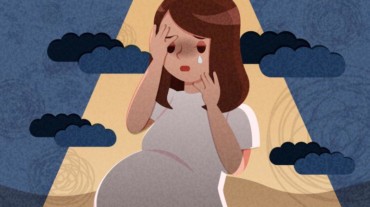
Depression is common lingo in today’s society. Although there is a stigma around people suffering from depression, we are only starting to acknowledge that it common. One in every five people suffers from depression in his/her lifetime.
In spite of it being so prevalent, we hardly know anything specific about it. We loosely use the term ‘depression’ for many of its subsets. Depression is linguistically used as an emotion as well as disorder. However, feeling sad or gloomy, having negative thoughts for some time does not constitute a depressive disorder. These are our emotions and its normal to have them.
When symptoms like low mood, decreased energy, lack of interest, sleep, and appetite disturbance, along with cognitive difficulties are persistent for more than two weeks, it is called as depressive disorder or in layman’s terms depression.
However, it is often a case that symptoms of depression last for months, or there is waxing and waning of symptoms with no complete recovery, or symptoms are present for long term but in mild severity. All variations are part of the umbrella term ‘depression’ but their long-standing tenure makes it ‘chronic depression’.
Chronic depression itself is a heterogeneous entity that consists of persistent depressive disorder (Dysthymia), a recurrent depressive disorder with no inter-episodic recovery, and long-standing depressive episodes secondary to continuous stressor.

Persistence depressive disorder (Dysthymia) is characterised by symptoms of depression like low mood, decreased interest, decreased energy, poor concentration, bleak and pessimistic view of future, alteration in sleep, appetite, and sexual desire. However, in dysthymia, these symptoms are mild in nature and persistent for more than two years. A person with dysthymia is productive and trying to take an active part in society. Often, they are labelled as a depressing personality type, ‘always sad or gloomy’ or ‘never happy’ people. It is often challenging to diagnose dysthymia as people don’t seek help, due to maintained functioning.
Recurrent depressive disorder with poor inter-episodic recovery is self-explanatory. It consists of multiple episodes of depression but there is no complete recovery between two episodes. Hence, it appears that the person is going through long periods of depression with waxing and waning of symptoms. Symptoms are the same as dysthymia except severity may vary from mild to severe.
Long-standing depressive episode secondary stressor is a single depressive episode sustaining for long time in the same or increasing severity due to ongoing stressor. This can be psychological or physical including chronic illness like diabetes, cancer, hypothyroidism. Ongoing stressor does not let the symptoms reduce. Symptoms are the same as a depressive episode.

Looking at the basket of chronic depression, the first impression is that this is nothing but long-standing depression. Then why so much fuss? It is important to understand and make a distinction.
Chronic depression is genetic in origin and having a family history of mood disorder is common. Chronic depression has devastating effects on the brain and other vital organs of the body. Chronic depression causes an alteration in neuronal circuits processing emotions, it causes changes in synapse formation to affect cognition and causes permanent changes (read damage) in the brain.
Select Topics of your interest and let us customize your feed.
PERSONALISE NOWIt also affects the heart and other vital organs. Research shows that patients who suffered heart attacks and have chronic depression experienced a higher chance of having more episodes of heart attacks. Chronic depression adversely affects our digestive system and causes long term problems of constipation, poor absorption, and chronic vitamin deficiency. Often, people who complain of long-standing and multiple pains can be suffering from chronic depression.
The treatment of chronic depression is a combination of medications and psychotherapy.
Commonly SSRI (selective serotonin uptake inhibitors) AKA serotonin enhancing drugs along with cognitive behavioral therapy has shown the highest promise when it comes to treatment. The real challenge is the persistence of treatment and consistent effort as a team between client, psychiatrist, and psychologist. Determining the treatment also depends on figuring out the cause, be it due to genetic reasons or stressors in the everyday environment. Hence, it is important to be able to diagnose early and start treatment.
Also, listen:
Remember, if you or anyone you know is suffering from depression seek treatment.